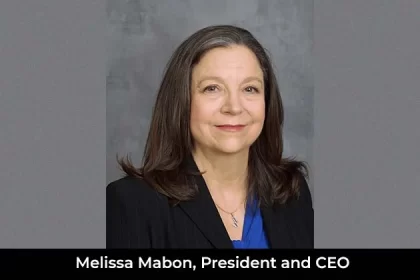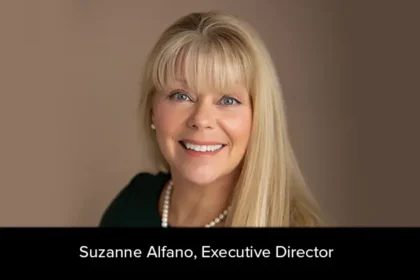When traversing the intricacies of car accident claims in Santa Fe, finding the right attorney for legal help after a car accident in Santa Fe is imperative for optimizing your compensation. You’ll want someone with an established history, regional knowledge, and a communication approach that aligns with your preferences. By understanding key elements like their expertise, success rate, and fee structure, you can make a more informed decision and position yourself for the best possible outcome.
Evaluate Their Experience and Expertise
Evaluating an attorney’s experience and expertise is paramount when seeking maximum compensation for a car accident case in Santa Fe. You need someone who’s well-versed in local laws and has a strong track record in handling similar cases. Look for attorneys who specialize in personal injury or car accident claims, as their focused knowledge can vastly improve your case. It’s essential to check how long they’ve been practicing, particularly in New Mexico, since local familiarity can make a difference.
Ask about the cases they’ve handled that are similar to yours. A seasoned attorney will know the intricacies of negotiating with insurance companies and maneuvering the court system. Don’t hesitate to inquire about their legal strategies, as understanding their approach helps you gauge their capabilities.
Assess Their Success Rate and Client Testimonials
A crucial step in selecting the right car accident attorney in Santa Fe is evaluating their success rate and reviewing client testimonials. You want someone who’s won cases similar to yours and has satisfied clients singing their praises. Start by researching their track record; a high success rate is a positive sign. Client testimonials offer firsthand insight into the attorney’s abilities and how they handle cases.
Look for:
- Consistent Wins: Check if the attorney consistently wins or settles cases favorably.
- Positive Feedback: Read testimonials for comments on professionalism, empathy, and effectiveness.
- Reputation: A well-regarded attorney in the community often means reliability and competence.
These steps help guarantee you’re choosing an attorney who can maximize your compensation.
Consider Their Communication and Availability
When choosing a car accident attorney in Santa Fe, it is vital to evaluate their communication skills and availability. You want someone who keeps you in the loop and responds promptly to your questions and concerns. During your initial consultation, pay attention to how they communicate. Are they clear and straightforward, or do they use legal jargon that leaves you confused? It’s important that they make you feel comfortable and informed.
Availability is equally essential. An attorney juggling too many cases might not give your case the attention it requires. Ask about their current caseload and how often you can expect updates. Also, consider their preferred methods of communication, whether it’s phone, email, or in-person meetings, to certify it aligns with your preferences.
Review Their Fee Structure and Payment Terms
One of the key factors to ponder when selecting a car accident attorney is their fee structure and payment terms. You’ll want to guarantee that their fees align with your financial situation without compromising the quality of representation. Typically, personal injury lawyers work on a contingency fee basis, meaning you pay no upfront costs. However, details can vary, so it’s essential to clarify the terms.
Consider the following:
- Contingency Fees: Most attorneys take a percentage of your settlement, so verify how much they’ll charge.
- Additional Costs: Ask if there are any extra fees for filing, investigations, or court expenses.
- Payment Timing: Ensure you understand when payments are due to avoid surprises later.
Verify Their Local Knowledge and Legal Network
Traversing the legal landscape in Santa Fe requires more than just expertise—it requires a deep understanding of local laws and connections. When choosing a car accident attorney, it’s essential they’re well-versed in Santa Fe’s specific legal nuances. Attorneys with local knowledge can navigate the intricacies of the area’s courts and know the nuances of local regulations, which can influence the outcome of your case.
Moreover, a strong legal network is invaluable. An attorney connected with local judges, other attorneys, and law enforcement can provide insights and leverage relationships that might benefit your case. Ask potential attorneys about their involvement in local legal communities and any past cases in the area. This local proficiency often translates to maximum compensation for you.
Frequently Asked Questions
How Can I Verify an Attorney’s Credentials and Certifications?
You can verify an attorney’s credentials by checking their state bar association’s website. Look for certifications, reviews, and any disciplinary actions. It’s also helpful to ask for references and confirm their experience in handling similar cases.
What Should I Prepare for an Initial Consultation With an Attorney?
For your initial consultation, you’ll want to gather all relevant documents, like police reports, medical records, and insurance information. Make a list of questions and concerns you have, and be ready to discuss your case in detail.
How Important Is the Attorney’s Reputation in the Local Community?
An attorney’s reputation in the local community is vital. You’d want someone known for winning cases and negotiating well. Check reviews and ask around. A respected attorney can greatly enhance your chances for maximum compensation.
Can I Switch Attorneys if I’m Not Satisfied With My Current One?
You can switch attorneys if you’re not satisfied. It’s your right to have representation that meets your needs. Just make sure to review any agreements and communicate clearly with both your current and potential new attorney.
What Questions Should I Ask During the First Meeting With a Potential Attorney?
You should ask about their experience with similar cases, success rate, fee structure, and communication style. Don’t forget to inquire about their strategy for your case and who’ll handle your case directly.










